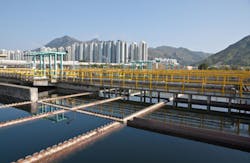Chinese academics claim that they have engineered bacteria that can efficiently remove lead from wastewater from various industrial processes, such as battery manufacturing, according to Chemical & Engineering News, a publication of the American Chemical Society.
Removing lead from wastewater is currently challenging, because it is quite expensive. At present, lead adsorption techniques include the use of expensive activated carbon and ion-exchange resin adsorbents. Apart from being too costly, those are also quite difficult to adapt to large-scale operations. But if the new method developed by the scientists can be scaled up for commercial use, it could be a game-changer for lead management in wastewater, the publication said.
RELATED: Bacteria could become important ally in environmental protection
Research leader Jing Zhao, of Nanjing University and Peking University's Shenzhen Graduate School, and his team say they have developed a sustainable method to recover heavy metals from wastewater, which could then be reused in various industries. Academics engineered Escherichia coli bacteria to express a lead-binding protein on the cell's surface, thus catching the lead without letting it accumulate inside the cell, facilitating its removal.
Zhao explained that the bacteria could collect five percent to 12 percent of the lead in solutions where lead is present in levels of between five and 300 μM. In China, lead concentrations up to five μM are permissible in wastewater, but on many occasions illegal discharges may exceed concentration of 300 μM.
